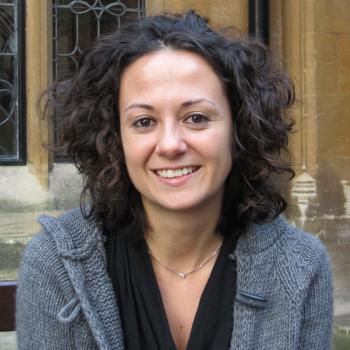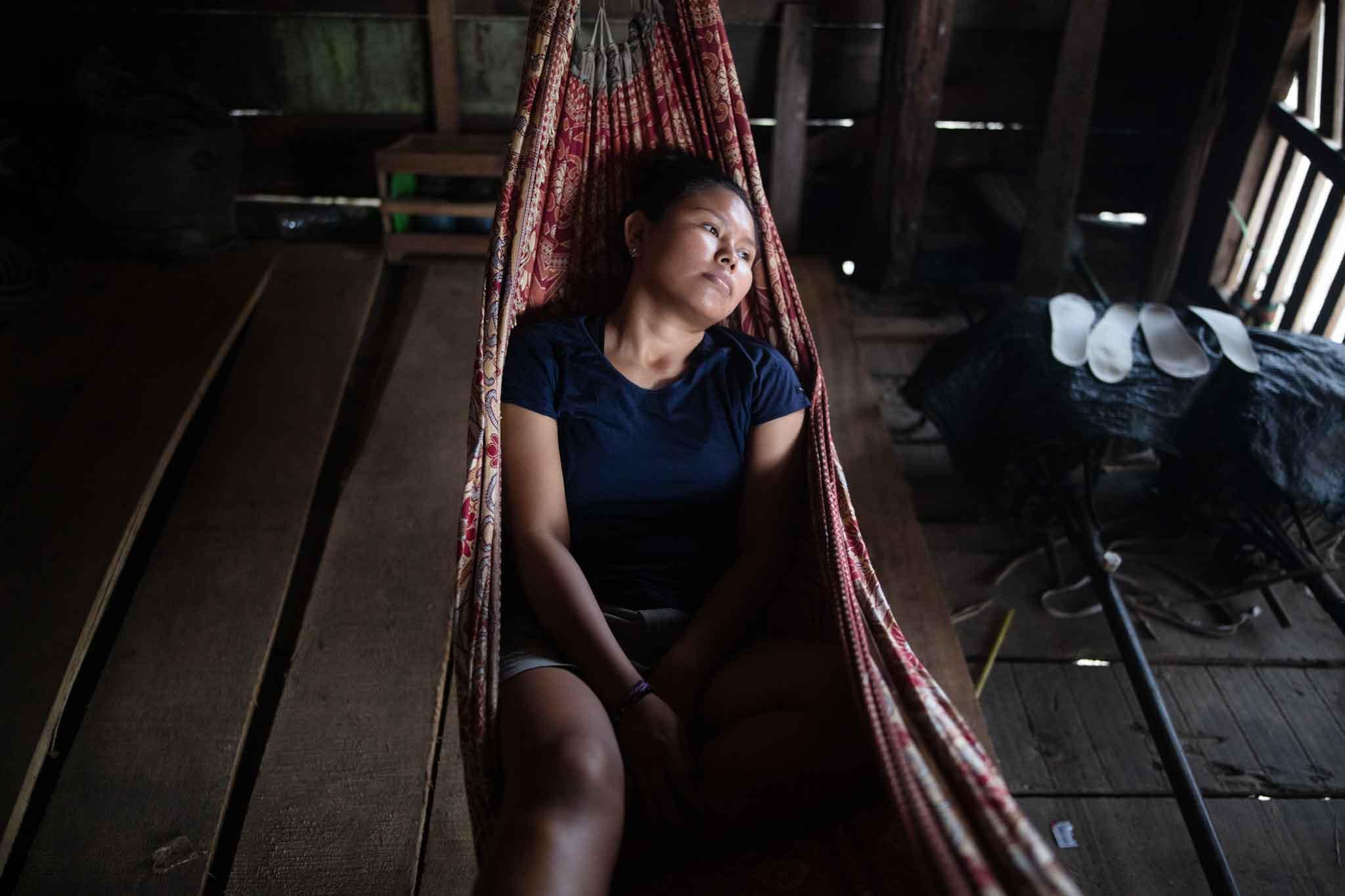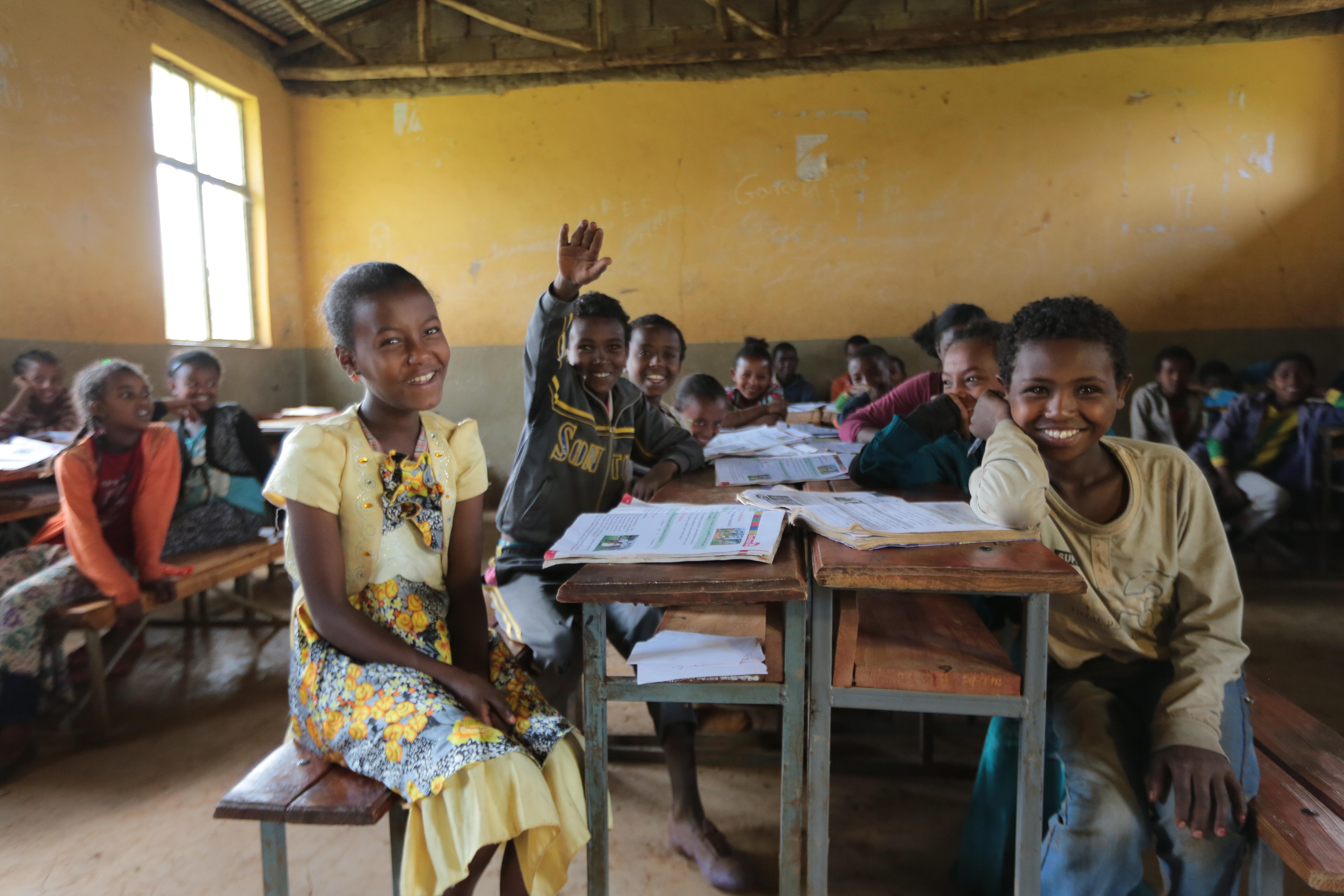
I am incredibly honoured to take on the role of Director at Young Lives.
My journey with Young Lives began officially in 2015 as a Research Officer, but it actually began even earlier when I used the Young Lives data for one of my doctoral papers. Over the years, I have witnessed the program grow and evolve. I have led the design and implementation of the past three survey rounds, supporting the study through significant challenges and fostering a legacy of impactful research.
Each step has deepened my commitment to our ambitious, innovative, mixed methods, longitudinal research-to-policy impact study. I am grateful to the team that has shaped Young Lives into what it is today —from past colleagues in Oxford and in our country studies whose insights have influenced my approach, through to the current team whose dedication continues to inspire me.
Looking back on our achievements, I am proud of how Young Lives has navigated complex global landscapes. We survived the threat of significant funding cuts following Brexit, when many other projects were affected, and successfully pivoted our approach during the global crises caused by COVID-19. The devastating ongoing conflict in Ethiopia continues to affect the lives of our cohorts and their families, and created significant disruptions during our Round 6 and Round 7 fieldwork.
I am proud of the evidence Young Lives has gathered around gender equality and the work we have done to amplify the voices of young women, who are often the most affected in times of crisis. Young Lives is committed to providing policy-relevant evidence to inform the debate on gender empowerment, including how climate transitions offer a real opportunity to shift the dial on women’s economic empowerment, rather than further exacerbating the gender employment gap.
Throughout all the recent challenges, our team has shown remarkable resilience, adapting our methodologies, maintaining the high quality of our data and research, and continuing to inform and shape international and national policy debates. I am grateful to our donors, for their flexibility, for their understanding and more important for their support and trust when we had to adjust plans due to unforeseeable circumstances.
As I step into this important role, I bring enthusiasm, passion and a commitment to continue on our successful path, driving innovation and generating policy-relevant research to improve the lives of young people in the Global South. With the recent completion of Round 7 data collection, we have a wealth of opportunities for further innovative research. The goal is to continue having a significant impact on international and national policies and programmes through the pivotal role of the Country Directors and communications team, to ensure that research and policy findings reach and influence intended audiences.
I'm delighted to share plans for three exciting new areas of work:
1. New Young Lives Research Hub on Climate Change and Environmental Shocks
I am particularly excited about harnessing the potential power of data matching to deepen our understanding and amplify our impact. By leveraging cutting-edge research methodologies, we aim to provide insights that are not only robust but also actionable for policymakers. Building on over two decades of longitudinal data, my ambition is to establish a ground-breaking new Young Lives Research Hub on Climate Change and Environmental Shocks. The Hub will generate, for the first time, important policy-relevant evidence on the long-term effects of climate-related shocks on human development across the life-course. We are uniquely equipped to provide robust evidence on the impacts of droughts, flooding, and rising temperatures, as well as increasing air pollution, experienced throughout infancy, childhood and adolescence.

2. Mental health in the spotlight
Young Lives research shows that the unprecedented combination of COVID-19, conflict and climate change is having a significant impact on young people’s lives, with profound effects on their mental health and well-being at a critical period in their lives as they transition into adulthood. In Round 6, we saw the consequences of the pandemic and its heavy toll on young people’s mental health, across all our study countries and particularly in Peru, the country with the world's highest COVID-19 death rate. Our evidence on the impact of the ongoing conflict in Ethiopia, alongside recent droughts, hyperinflation, and alarming levels of food insecurity, on young people’s mental health is deeply concerning. Young Lives was present when the conflict began, and we have recently returned to the most affected regions during Round 7.
Given this evidence, and the fact that mental health issues constitute the largest burden of disease globally, means that mental health is a new research priority for Young Lives. The lack of research on the life-course determinants of adult mental health in low- and middle-income countries, mean Young Lives is very well placed to make a substantial contribution in this area, including on the critical factors affecting mental health, identifying the developmental stages at which these factors have the most significant impact, and exploring the relationship between mental health and cognitive and emotional functioning in high-risk contexts.

3. Multidisciplinary collaboration putting Young Lives at the forefront of innovation
I am committed to investing energy, resources and time to ensure that Young Lives remains at the forefront of innovation in social science research, always learning from other scientific disciplines. For example, by collaborating closely with medical scientists, neuroscientists, and developmental psychologists, alongside social scientists, we aim to enhance our understanding of how growing up in poverty and facing inequalities over the life-course affect cognitive skills development. We will explore how children acquire foundational skills, investigate the neuroscience of cognitive development, and examine the long-term consequences of child malnutrition. We will study how cognitive and non-cognitive skills interact, and the roles that formal and informal institutions, families, education and social interactions play in shaping skills over the life-course.

Looking ahead
My priorities will be to further enhance our research-policy impact, build a better understanding of how to reduce gaps and inequalities affecting the most disadvantaged in the global south and secure funding for the next two survey rounds. I also want to reinstate the qualitative study in those countries where funding constraints did not allow us to collect data in recent years.
My ambition is to follow the Millennium Generation to the end of their third decade of life, achieving a unique “birth to thirty” longitudinal study that coincides with the culmination of the Sustainable Development Goals in 2030. This timing is ideal for contributing to the final evaluation of the success of the SDGs, informing future global targets, and laying the foundations for a new cohort study that follows the new generations of babies, “the Children of the Millennium Generation”.
Leading Young Lives into its next chapter fills me with optimism and determination. With strong foundations, a dedicated team and the well-established long-term collaborations with our country partners, we are well-positioned to drive evidence-based transformations for young people around the world.

I am incredibly honoured to take on the role of Director at Young Lives.
My journey with Young Lives began officially in 2015 as a Research Officer, but it actually began even earlier when I used the Young Lives data for one of my doctoral papers. Over the years, I have witnessed the program grow and evolve. I have led the design and implementation of the past three survey rounds, supporting the study through significant challenges and fostering a legacy of impactful research.
Each step has deepened my commitment to our ambitious, innovative, mixed methods, longitudinal research-to-policy impact study. I am grateful to the team that has shaped Young Lives into what it is today —from past colleagues in Oxford and in our country studies whose insights have influenced my approach, through to the current team whose dedication continues to inspire me.
Looking back on our achievements, I am proud of how Young Lives has navigated complex global landscapes. We survived the threat of significant funding cuts following Brexit, when many other projects were affected, and successfully pivoted our approach during the global crises caused by COVID-19. The devastating ongoing conflict in Ethiopia continues to affect the lives of our cohorts and their families, and created significant disruptions during our Round 6 and Round 7 fieldwork.
I am proud of the evidence Young Lives has gathered around gender equality and the work we have done to amplify the voices of young women, who are often the most affected in times of crisis. Young Lives is committed to providing policy-relevant evidence to inform the debate on gender empowerment, including how climate transitions offer a real opportunity to shift the dial on women’s economic empowerment, rather than further exacerbating the gender employment gap.
Throughout all the recent challenges, our team has shown remarkable resilience, adapting our methodologies, maintaining the high quality of our data and research, and continuing to inform and shape international and national policy debates. I am grateful to our donors, for their flexibility, for their understanding and more important for their support and trust when we had to adjust plans due to unforeseeable circumstances.
As I step into this important role, I bring enthusiasm, passion and a commitment to continue on our successful path, driving innovation and generating policy-relevant research to improve the lives of young people in the Global South. With the recent completion of Round 7 data collection, we have a wealth of opportunities for further innovative research. The goal is to continue having a significant impact on international and national policies and programmes through the pivotal role of the Country Directors and communications team, to ensure that research and policy findings reach and influence intended audiences.
I'm delighted to share plans for three exciting new areas of work:
1. New Young Lives Research Hub on Climate Change and Environmental Shocks
I am particularly excited about harnessing the potential power of data matching to deepen our understanding and amplify our impact. By leveraging cutting-edge research methodologies, we aim to provide insights that are not only robust but also actionable for policymakers. Building on over two decades of longitudinal data, my ambition is to establish a ground-breaking new Young Lives Research Hub on Climate Change and Environmental Shocks. The Hub will generate, for the first time, important policy-relevant evidence on the long-term effects of climate-related shocks on human development across the life-course. We are uniquely equipped to provide robust evidence on the impacts of droughts, flooding, and rising temperatures, as well as increasing air pollution, experienced throughout infancy, childhood and adolescence.

2. Mental health in the spotlight
Young Lives research shows that the unprecedented combination of COVID-19, conflict and climate change is having a significant impact on young people’s lives, with profound effects on their mental health and well-being at a critical period in their lives as they transition into adulthood. In Round 6, we saw the consequences of the pandemic and its heavy toll on young people’s mental health, across all our study countries and particularly in Peru, the country with the world's highest COVID-19 death rate. Our evidence on the impact of the ongoing conflict in Ethiopia, alongside recent droughts, hyperinflation, and alarming levels of food insecurity, on young people’s mental health is deeply concerning. Young Lives was present when the conflict began, and we have recently returned to the most affected regions during Round 7.
Given this evidence, and the fact that mental health issues constitute the largest burden of disease globally, means that mental health is a new research priority for Young Lives. The lack of research on the life-course determinants of adult mental health in low- and middle-income countries, mean Young Lives is very well placed to make a substantial contribution in this area, including on the critical factors affecting mental health, identifying the developmental stages at which these factors have the most significant impact, and exploring the relationship between mental health and cognitive and emotional functioning in high-risk contexts.

3. Multidisciplinary collaboration putting Young Lives at the forefront of innovation
I am committed to investing energy, resources and time to ensure that Young Lives remains at the forefront of innovation in social science research, always learning from other scientific disciplines. For example, by collaborating closely with medical scientists, neuroscientists, and developmental psychologists, alongside social scientists, we aim to enhance our understanding of how growing up in poverty and facing inequalities over the life-course affect cognitive skills development. We will explore how children acquire foundational skills, investigate the neuroscience of cognitive development, and examine the long-term consequences of child malnutrition. We will study how cognitive and non-cognitive skills interact, and the roles that formal and informal institutions, families, education and social interactions play in shaping skills over the life-course.

Looking ahead
My priorities will be to further enhance our research-policy impact, build a better understanding of how to reduce gaps and inequalities affecting the most disadvantaged in the global south and secure funding for the next two survey rounds. I also want to reinstate the qualitative study in those countries where funding constraints did not allow us to collect data in recent years.
My ambition is to follow the Millennium Generation to the end of their third decade of life, achieving a unique “birth to thirty” longitudinal study that coincides with the culmination of the Sustainable Development Goals in 2030. This timing is ideal for contributing to the final evaluation of the success of the SDGs, informing future global targets, and laying the foundations for a new cohort study that follows the new generations of babies, “the Children of the Millennium Generation”.
Leading Young Lives into its next chapter fills me with optimism and determination. With strong foundations, a dedicated team and the well-established long-term collaborations with our country partners, we are well-positioned to drive evidence-based transformations for young people around the world.

